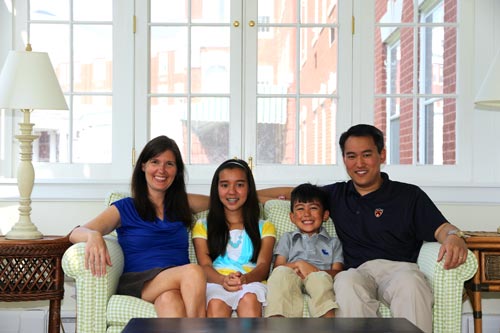All
Heal me, Lord, and I will be healed;
save me and I will be saved,
for You are the one I praise. — Jeremiah 17:14
The Marketplace and Social Shalom
By Dr. Anthony Bradley
From ChristianUnion.org

Dr. Anthony Bradley, professor, public intellectual, and author was the featured speaker at New York City Christian Union's July 2015 Forum. Dr. Bradley explores the implications of understanding business as a social justice vocation by nature and defines the ways in which marketplace leaders are invaluable as the primary change agents for communities seeking to help the poor and bring peace...
Watch Here >
 In the wake of the Supreme Court’s egregious same-sex “marriage” ruling, the church faces a host of challenges. The secular gospel of sexual liberation as a human right has captured the public imagination, thanks especially to the aggressive marketing of corporate and media establishments. Marketing ploys portray a confused and deeply harmful view of sexuality, one that debases men and women, as “beautiful and true.” How can the church help expose the flawed logic of the sexual revolution and bring hope and healing to society?
In the wake of the Supreme Court’s egregious same-sex “marriage” ruling, the church faces a host of challenges. The secular gospel of sexual liberation as a human right has captured the public imagination, thanks especially to the aggressive marketing of corporate and media establishments. Marketing ploys portray a confused and deeply harmful view of sexuality, one that debases men and women, as “beautiful and true.” How can the church help expose the flawed logic of the sexual revolution and bring hope and healing to society?First and foremost, the church needs to be persuasive to the up and coming generation. Too many times has the church come across as irrelevant or even oppressive. The church must present a compelling response to the “liberating” claim of the sexual revolution, exposing this claim for the lie that it is and fleshing out a biblical alternative that is more fulfilling and life-giving individually and socially. To be effective, this articulation must not be confined to like-minded circles, but fully conversant with the predominant secular narrative, going toe-to-toe with its best spokespeople.
Bearing the Burdens of Others (47:54)
Commissioning and Prayer (37:47)
City Christian Union is a ministry of Christian Union that works with individuals and institutions in developing a network of strong Christian leaders to impact influential cities, starting with New York City.
The LORD is my strength and my shield; in Him my heart trusts, and I am helped; my heart exults, and with my song I give thanks to Him. The LORD is the strength of his people; He is the saving refuge of his anointed. — Psalm 28:7-8
All Christians are Gospel Missionaries
By Lorri Bentch
From ChristianUnion.org

Every Christian, regardless of which career path he or she is pursuing, is called to make disciples. In this recording from Rooted, the Christian Union Leadership Lecture Series at Yale, Christian Union Vice President of Operations Lorri Bentch challenges all believers to be disciple-makers — to be missionaries — within their respective spheres of influence...
Listen Here >
https://www.youtube.com/watch?time_continue=43&v=o0zlsew-u8I
Therefore, since we have been justified by faith, we have peace with God through our Lord Jesus Christ. Through him we have also obtained access by faith into this grace in which we stand, and we rejoice in hope of the glory of God. — Romans 5:1-2
Perspectives on Obergefell
By Various
From First Things

How should we respond to the ruling by the Supreme Court in Obergefell v. Hodges that there is a constitutional right to same-sex marriage? What’s next?...
Read More Here >
Bored to Life: Secularism and its Malcontents
By Scott Jones
From Princeton Faith and Action

Do all of your earthly accomplishments end up feeling like hurdles on an endless path? Christian Union Ministry Fellow at Princeton, Scott Jones, speaks at Encounter, the weekly leadership lecture series resourced and supported by Christian Union at Princeton...
Watch It Here >
...to Make Disciples
We are all disciples of someone.

Family Helps Next Generation Grow to Spiritual Maturity
by Sarah CampWhen Tim Kuo '96 arrived at Princeton as an undergraduate, he wanted to be part of a Christian community, but admits he didn't expect Christ to be central to his college experience.






